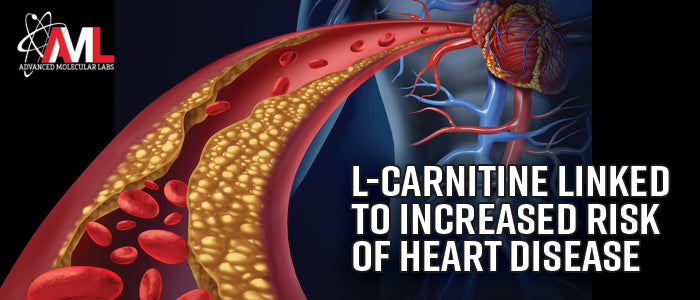


L-Carnitine Side Effects: Risks & Insights
Nutrition experts recommend reducing intake of red meat in the diet because it is high in cholesterol and saturated fat, which promotes coronary artery disease. A Cleveland Clinic study led by Stanley Hazen found that carnitine, a popular athletic supplement and component of red meat, also triggers heart disease. Bacteria in the gut break down carnitine to trimethylamine-N-oxide (TMAO), which promotes arterial disease by increasing cholesterol deposits in the arteries, contributing to causes of heart failure. High TMAO in the blood was a good predictor of heart attack and stroke. A study by the same research group showed that gut microbes also metabolized phosphatidylcholine, another athletic supplement, to TMAO. Administration of antibiotics decreased TMAO levels.
L-carnitine side effects are a growing concern given its popularity as an athletic supplement. While many athletes and fitness enthusiasts turn to carnitine for its potential benefits, it's essential to understand the associated risks. The primary side effects of L-carnitine include:
- Increased risk of cardiovascular disease due to elevated TMAO levels.
- Potential digestive issues, such as nausea or diarrhea, especially when consumed in high doses.
- Possible interference with thyroid hormone levels, which may impact metabolism.
- Rare cases of muscle weakness or cramps.
While some studies suggest that carnitine may not significantly improve athletic performance, the side effects of L-carnitine, particularly the cardiovascular risks, warrant caution. A joint position statement from the American Dietetic Association and the Dietitians of Canada concluded that carnitine does not improve athletic performance and might also promote heart disease symptoms. Further research on cardiovascular system diseases is warranted. (Nature Medicine, 19:576-585; New England Journal of Medicine, 368: 1575-1584)
Understanding the l-carnitine side effects is crucial for anyone considering its supplementation. The potential risks associated with l-carnitine side effects, such as cardiovascular issues, are significant. Therefore, it is vital to approach its use with caution. Here are some considerations for those evaluating the use of L-carnitine:
- Consultation with a healthcare professional is advised to ensure that L-carnitine supplements are suitable for your personal health needs and goals.
- Monitoring dosage is essential. High doses may amplify the risk of adverse effects, including digestive and cardiovascular issues.
- Consider alternative supplements that may offer similar benefits without the associated risks of L-carnitine.
- Stay informed about the latest research on carnitine side effects and its impact on health to make educated decisions.
For those considering L-carnitine supplements, it's crucial to weigh the potential benefits against the risks. Consulting with a healthcare professional can provide personalized advice and help determine the best approach to incorporating supplements into your fitness regimen. As with any supplement, moderation and informed decision-making are key to ensuring safety and effectiveness.



